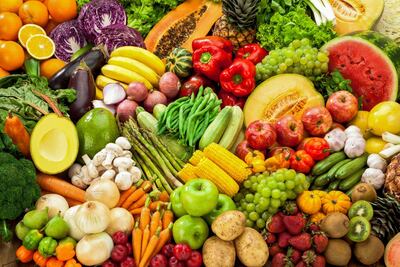Researchers say that about 80 per cent of people who set themselves goals in the new year fail, with a majority giving up by month two – so right about now. Most people, especially those who have set themselves strict New Year's resolutions to get healthier, will start the year with good intentions, whether that means going to the gym or making better food choices. But, by February, those plans can begin to waiver and old habits start creeping back.
It's easily done, and often the result of setting yourself unrealistic goals. The truth is, you're probably not going to drop a stone in a month, and even if you do, it's unlikely you'll have gone about things in a way that is sustainable long-term.
If you feel yourself on the cusp of becoming part of that 80 per cent stat, perhaps it’s time to change how you think about your goals. Rather than making big changes that will in turn introduce huge limitations and challenges to your life, try to think of the small steps you can take to help yourself stick to a diet or exercise routine. Here are six easy changes that could have a big impact on your health …
Meat-free Mondays
Perhaps one of your New Year's Resolutions was to eat less meat, or maybe you are one of the 350,000 people who signed up to take part in this year's Veganuary, but the reality of keeping it up long-term seems a little daunting. Why not join the Meatless Monday movement? Dedicating one day a week to going without meat is something most people will be able to commit to. Not only does it give you a chance to plan meals ahead of time to ensure you are not caught out, but it also means there are times throughout the week when you can tuck into the foods you might otherwise crave if you were to cut them out completely. And while you might not think one day a week is enough to cause any huge changes, you'll be surprised by the impact it can have on your health. A four-year study of 15,000 people in the US found that those who spent a portion of their week following a meat-free diet were 42 per cent less likely to develop heart disease. Trying Meatless Mondays also gives you a chance to explore plant-based recipes and pack more vegetables into your diet.
Intermittent fasting
Intermittent fasting has been a trend among dieters for years now, and with good reason. Adding prolonged periods of fasting into your week can force your body to use up its fat stores, even when you are not doing anything by way of exercise. There are many ways to try intermittent fasting, ut the most popular methods are the 5:2, which allows you to eat normally for five days of the week, while limiting calories to 500 on the two fasting days; and the 16:8 method, which is done daily to give your body a 16-hour fasting and an eight-hour eating window. Most fasters chose to eat between noon and 8pm, in which time they consume three healthy, balanced meals as normal. A study at the University of Texas found that going through periods with little or no food – what is called time-restricted fasting – reduces inflammation, improves blood lipids and helps with weight loss.
Eat the rainbow
We all know the importance of eating our five a day, but it's not all about getting those greens in. Nutritionists advise incorporating at least three colours on our plates, and it's all to do with nutrients. Fruit and vegetables get their hue thanks to the goodness they have packed inside, so ensuring a mix of colours is ensuring a mix of vitamins making it into your diet. Red ones are packed full of antioxidants and are great for promoting heart health, while orange and yellow fruit and veg are rich in vitamin A, and promote bone and skin health. Green vegetables support a healthy immune system and reduce risk of chronic disease, and blue and purple fruit are anti-inflammatory and support digestive health.
Switch up your oils
Changing oils can provide valuable nutrients and aid weight loss. Chef Jamie Oliver recommends making the switch to rapeseed oil. It has less unhealthy saturated fat than other cooking oils and is high in omegas 3, 6 and 9, helping to maintain healthy cholesterol levels. Another option is coconut oil, which is available in most supermarkets and has plenty of health benefits. Studies show it can reduce belly fat and suppress appetite; and 40 per cent of it is lauric acid, which is less likely to contribute to weight gain than other types of fat.
Take the stairs
Instead of committing to an intense workout routine you will struggle to fit into your schedule and ultimately dread, find little ways to supplement a steady routine you can build into your everyday life. One way is to promise yourself you'll take the stairs. Do it at your workplace and home, or choose only one, but make a point of avoiding the lift no matter what. Even a few minutes of stair-climbing in short intervals throughout the day can boost cardiovascular health, a study published in the journal Applied Physiology, Nutrition and Metabolism found last year. It's also shown to help burn calories, increase bone density and strengthen the immune system.
Don't skip breakfast
For many dieters, breakfast is the first meal to go, but, as the adage goes, it is the most important meal of the day. Eating in the morning kick-starts your metabolism and puts your body to work burning off unwanted energy. Choosing a healthy breakfast will also stop you from feeling hungry throughout the day, and leave you less likely to reach for sugary snacks. Many studies have looked at the impact of breakfast. In one notable study, researchers at Harvard University found that those who consistently ate breakfast that contained wholegrains were likely to weigh less than those who regularly skipped breakfast. Weight loss aside, eating in the morning also boosts your nervous system, leading to improved brain function such as a better memory.







